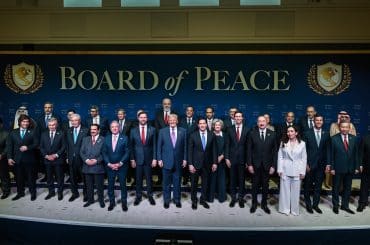Susie Kneedler shares my feeling that David Brooks is influential. Her take on his Israel column:
Now that I've read David Brooks's column, I think I see what festers about it.
Brooks tries to say something smart about Israel by, in his own
phrase, ''— miracle
of miracles —" telling the truth: "Israel is a country held together by
argument." Brooks tries to account for his own sense of foreignness
there, but is caught in the contradiction between the unpleasantness of
his experience and his political preconceptions (prejudices). He can't
even disentangle himself from the mutual exclusivity of the
opposites–cohesion and discord–that he finds in Israel: "genuine
national unity…[yet]
Israel is the most diverse small country imaginable."
Brooks
justifies his discomfort being pushed around in Israel with Israel's
own self-image: "a tough, scrappy country, perpetually fighting for
survival." Brooks bows to the ideology that Israel is under constant
existential threat, and himself heightens the temperature of debate by
painting critics as "Israel’s enemies."
Brooks calls his sojourn in
Israel "here," not "there," but then blames the "Middle
Eastern" culture of Israel, not "Western
colonialism," for the Israeli-Arab dispute. "Israel is stuck in a
period of frustrating stasis" of other people's making: "Iran
poses an existential threat that is too big for Israel to deal with
alone. Hamas and Hezbollah will frustrate peace plans, even if the
Israelis magically do everything right." Brooks even tells us how he
came to identify so fully with a foreign power, "As an American Jew, I
was taught to go all gooey-eyed at the thought of Israel." He seems to
assume that this childhood brain-washing is natural. However, when I
was growing up, the nostalgia of, say, descendants of Irish Catholics
for Ireland–that niether they nor even their grandparents had ever
visited–was considered bizarre.
Brooks uses his culture-shock "here[not there]," as an image for
the conflict caused American defenders of Israel's pugnacity: its
"insufferable and
necessary barrage of self-assertion." "Suffered" by whom? And why
"necessary"?
Hmm, I wonder why the "the peace process is always the same," in a
country of "disputatiousness" not "peace"? But Brooks blinds himself
to the dissonance between his facts and his ideology that is dramatized
by his own climactic image.
He, a peaceful civilian, just trying to conduct his everyday
business, is–apparently repeatedly–ousted from his rightful place, by
"an Israeli shopper [who] sees a chance to butt in front of me." The
idea! Brooks's territory, his right to the service he has queued for
and wasted time waiting for, are stolen from him by a cheater who
pushes into his place in the hierarchy "in line" "in front of an
Israeli cash register." Brooks longs wisfully for "peace," a time when
"she will not try to take it," that chance to horn in.
"Try"? Uh-oh. Does this mean that Brooks fought back? Is he an
anti-Semite, depriving an Israeli of her sovereign, god-given land in
the country of her ancestors? I wonder what would have happened to
Brooks if he'd been an Arab Israeli, rather than a famous American
commentator. We know what Israel does to peaceful American and
Palestinian protesters in the West Bank, as well as to starving
Palestinians in Gaza. Yes, David Brooks, let's all "still dream of
peace." Let's hope for "the day when" the nation of "Israeli shoppers"
will not "butt in" "— miracle
of miracles —"will not try to take" more.

